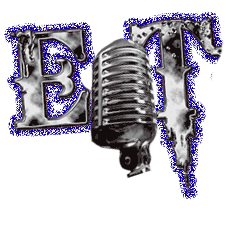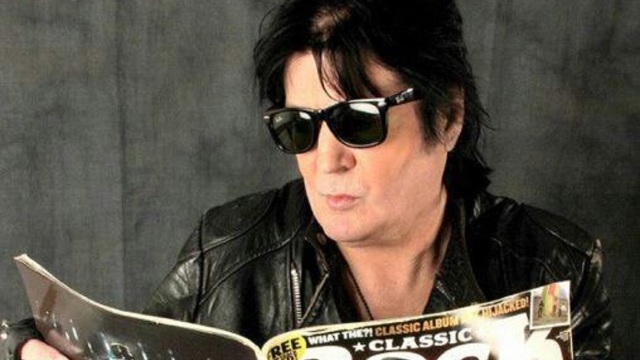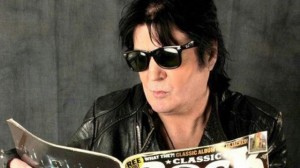Former UFO bass player Pete Way has looked back on the recording of his band’s album No Place To Run, made during a sun-soaked two months in 1980 at AIR Studios Monserrat with George Martin, the producer of The Beatles, who died on Tuesday.
“George was a really nice guy,” he says, “and getting to make a record with him was a complete honor.”
In an out-of-frying pan-into-fire scenario, UFO had re-appointed former Lone Star guitarist Paul “Tonka” Chapman (a member during the mid-1970s) to replace Michael Schenker, who’d quit after the double-live album Strangers In The Night. The album that became No Place To Run ended a string of recordings made with Ron Nevison. Way recalls that Chrysalis had hoped Martin – who operated out of the record company’s London office – might make the band sound poppier, perhaps even tease out a hit single.“They wanted us to do what Styx and Foreigner had done – take things to the next level,” he says, laughing at the notion’s ridiculousness.
To this end they were happy to send UFO to the small Caribbean island of Monserrat, where Martin had built a studio, having fallen in love with the place during his days in the Navy. From the label’s viewpoint its atmosphere of sophistication — and a distinct lack of bars — made the place a far less dangerous workplace than London or Los Angeles.
“Rubbish!” Way snorts. “This was UFO! If you wanted to do so, you could get so completely drunk on rum that you’d fall over.”
And that’s exactly what happened, despite the band reigning in their after-hours entertainment during working hours. And make no mistake, Martin operated to a strict timetable.
“You’d start at around 11 o’clock [am] and at six [pm] there’d be a break. A gentleman in a white jacket would bring him a gin and tonic, and we’d head into the main house for a meal,” the bassist relates. “It was all very colonial and civilized – though it didn’t stay that way when Martin retired for the evening.”
According to Way, Martin had “no problem” with alcohol being consumed in the studio, and he favoured a relaxed, friendly approach.
“Sometimes in the evening we’d all meet up at the beach, of course it was warm and bright,” he recalls. “George would go into the sea and swim for miles – he was incredibly fit.”
Although Way counted himself a fan of the Beatles his real loves were the Stones, Zeppelin and Sabbath, so he wasn’t in awe of the producer, or his trusty engineer Geoff Emerick, who’d also worked on Sgt Pepper.
“George was like one of the boys, really,” he muses. “He never threw his weight about or reminded you of his reputation. He was very interested in the way that we liked to work, because it really was an experiment on both sides of the equation. For instance, he wasn’t used to recording the backing tracks first.
“Sometimes he’d ask, ‘Is Phil [Mogg] coming in today?’ because he was used to John and Paul having their lyrics ready. George would get anxious about the [lack of] words and we’d have to placate him, ‘Oh, don’t worry, they’re done’, when we all knew very well that Phil was down at the beach waterskiing.”
For their own part, UFO were flummoxed by the quietness of Martin’s studio playbacks. “They sounded like a transistor radio,” says Pete. “After George had left, Paul Chapman and I would rachet up the volume to the point where I’m surprised the place still had a roof.”
In the end, UFO were unable to come up with the elusive hit single, Young Blood stalling at Number 36 and being tucked away at the beginning of side two of No Place To Run’s original vinyl edition.
source: classicrock.teamrock.com



2 Responses
I love No Place To Run!
Back in the day, I played the s–t out of that vinyl.
Never knew the producer, or even that Schenker wasn’t the guitarist then, just a great hard rock album.
These days, still rockin’ to the remastered version on CD.
Been a UFO fan since the late 70s. Thanks to Eddie for promoting this iconic band and introducing them to the newer generation.
Is it me, or does Pete look like Corey Feldman in that picture?